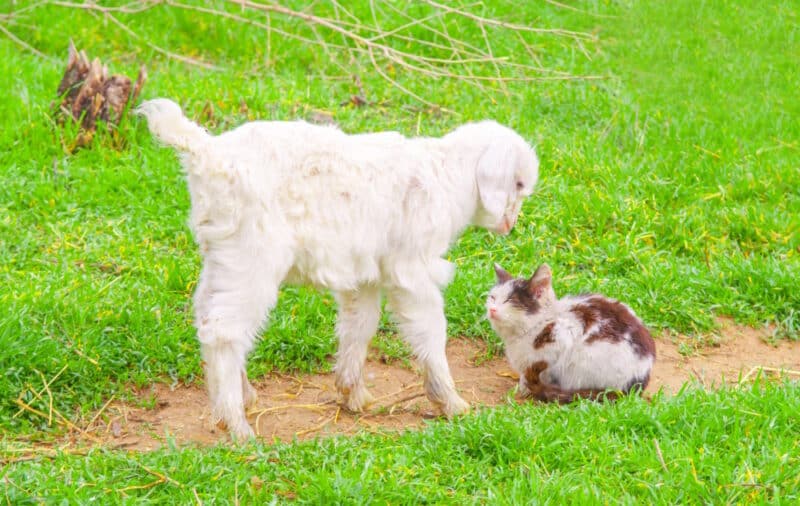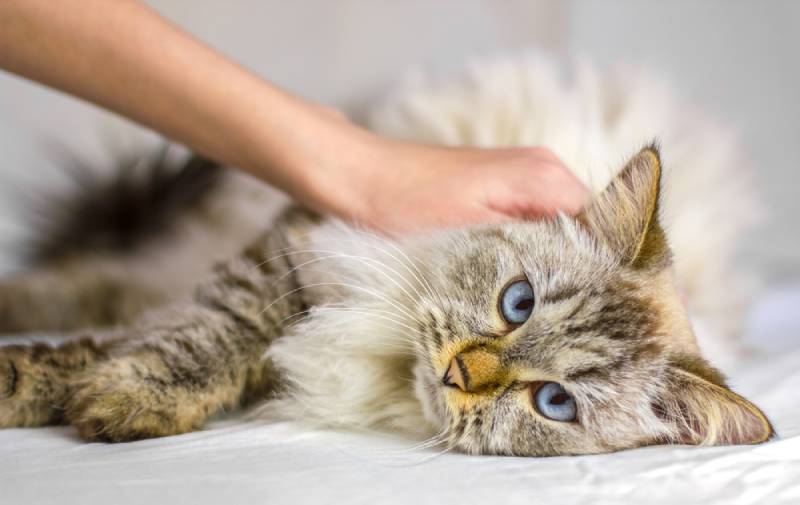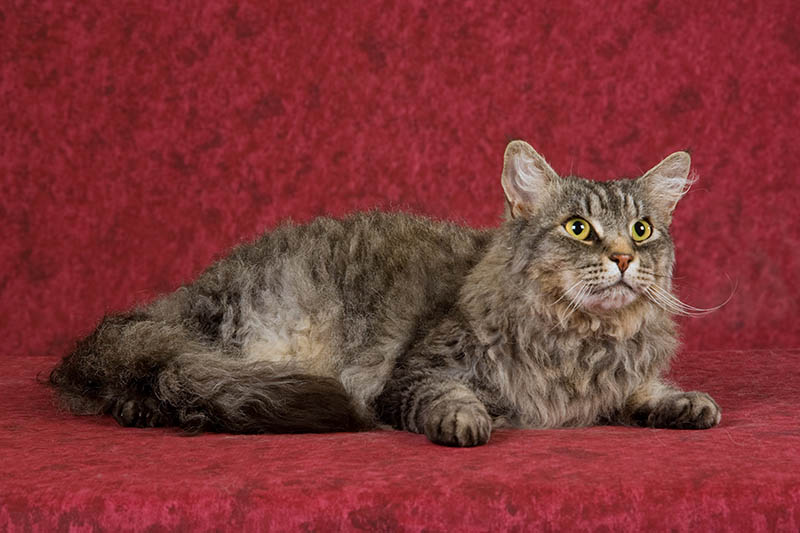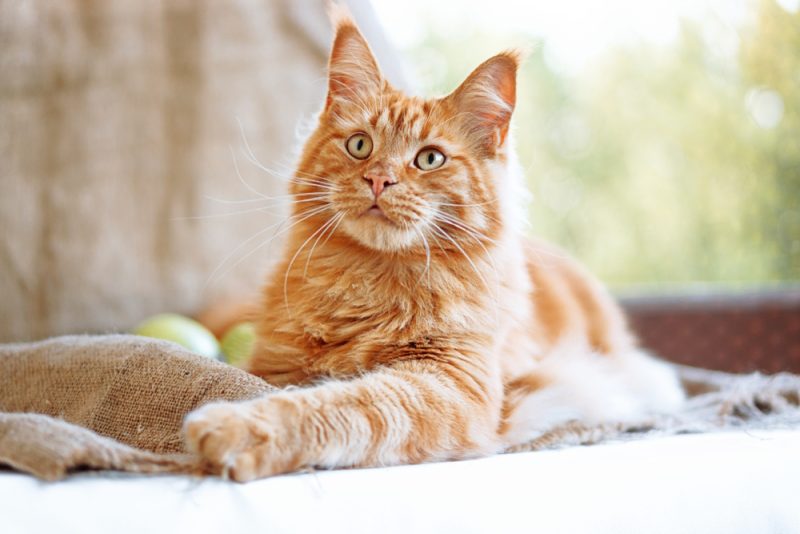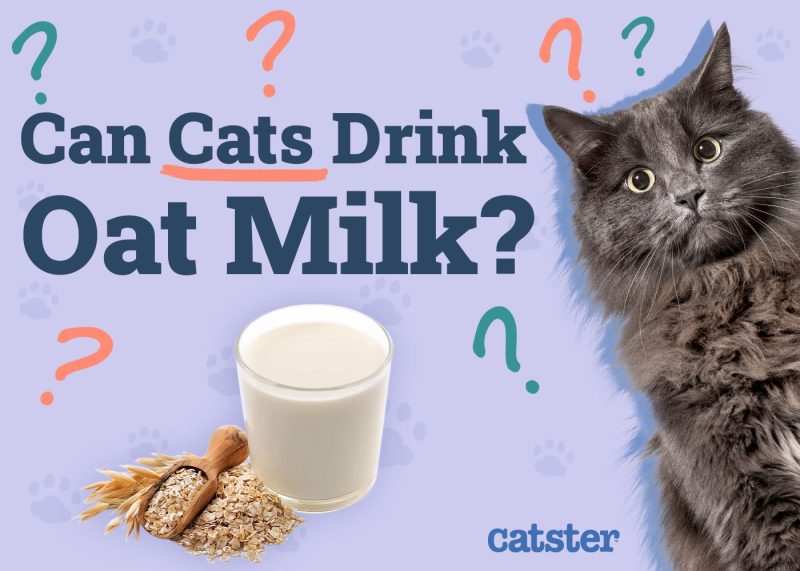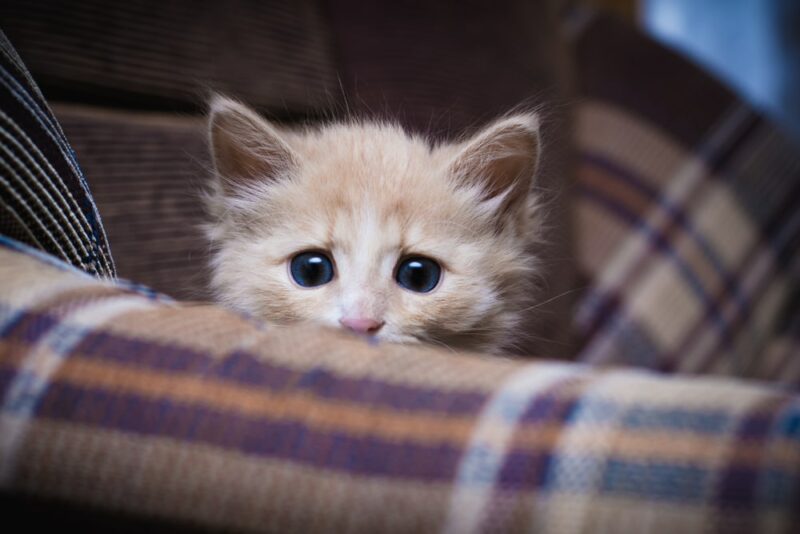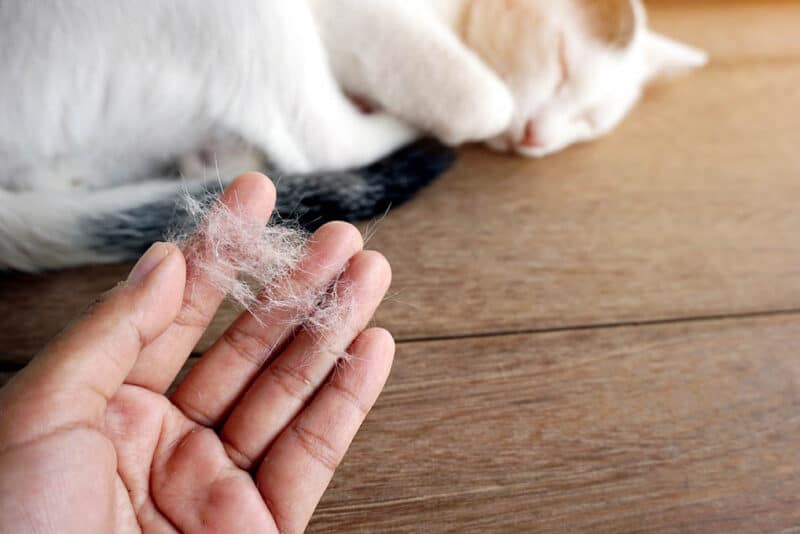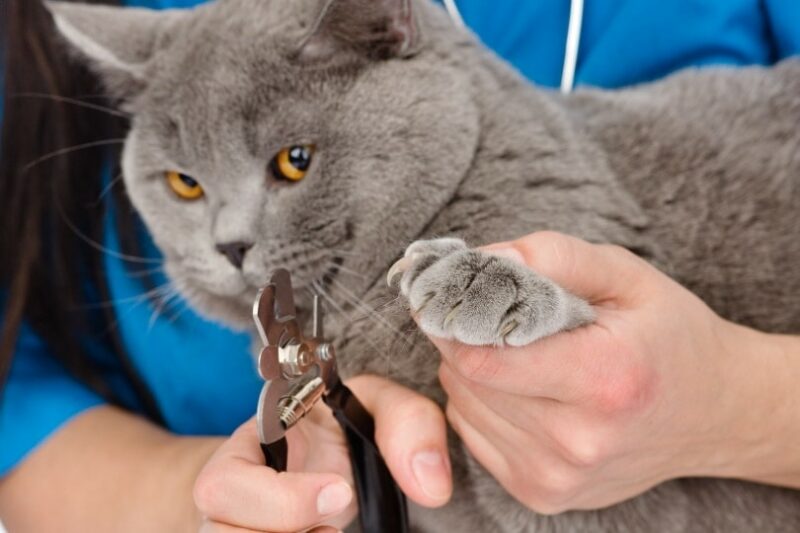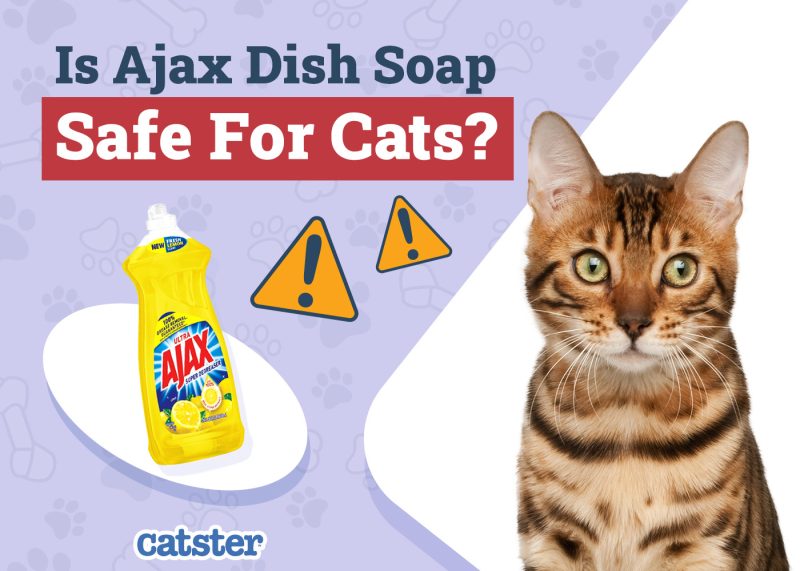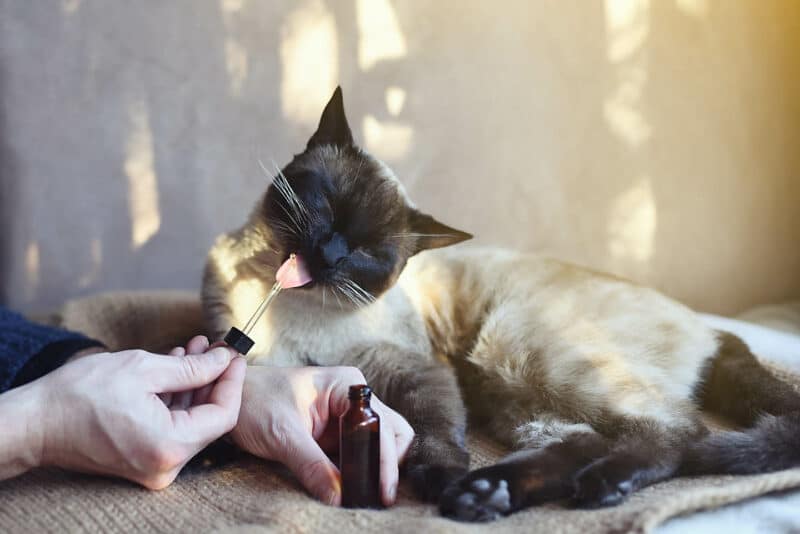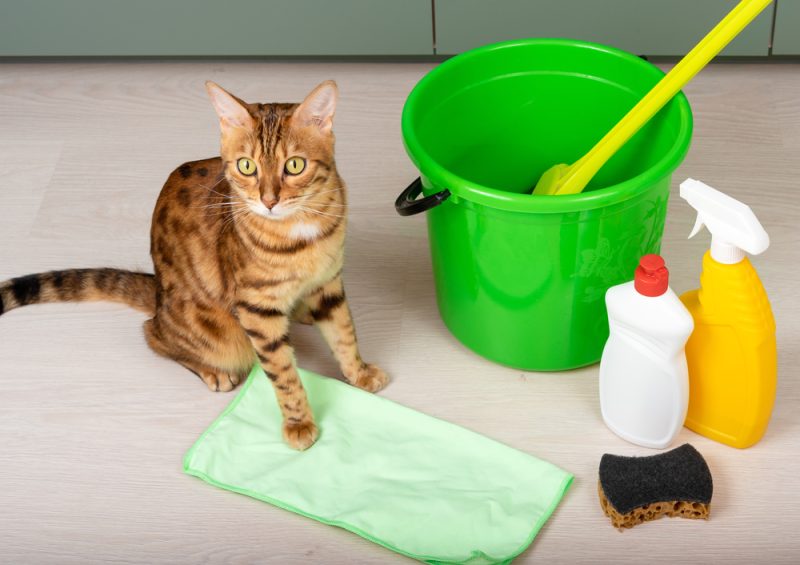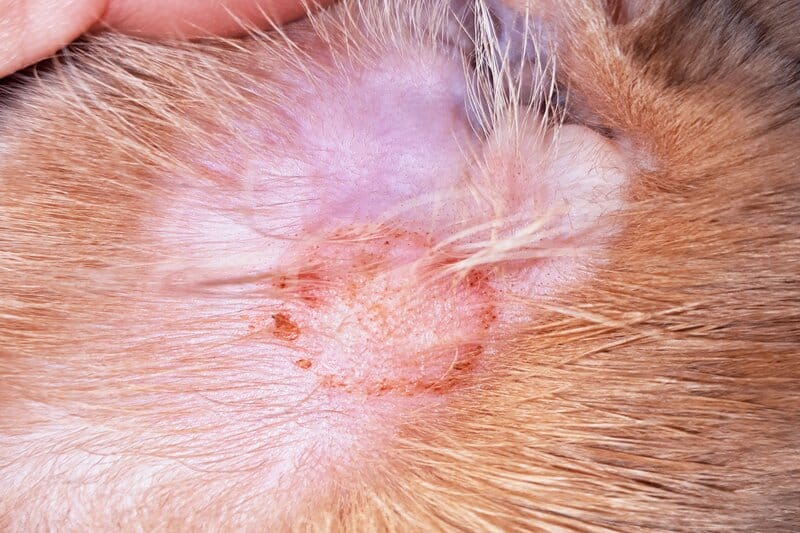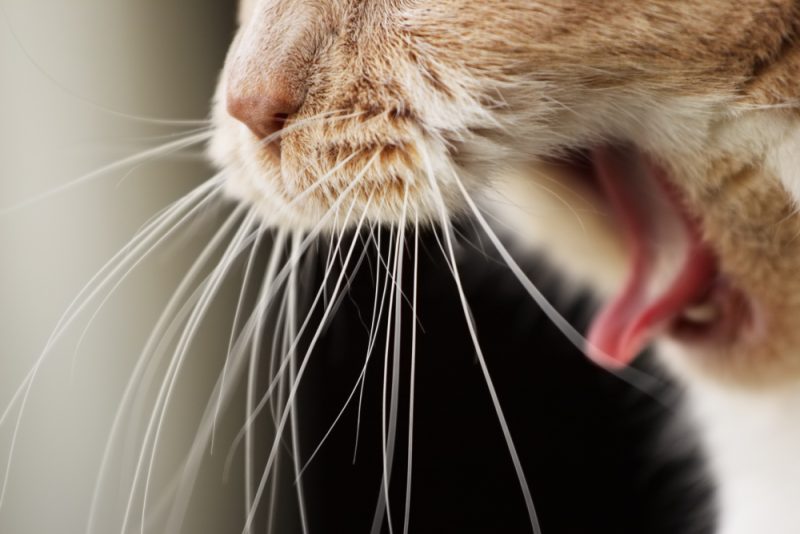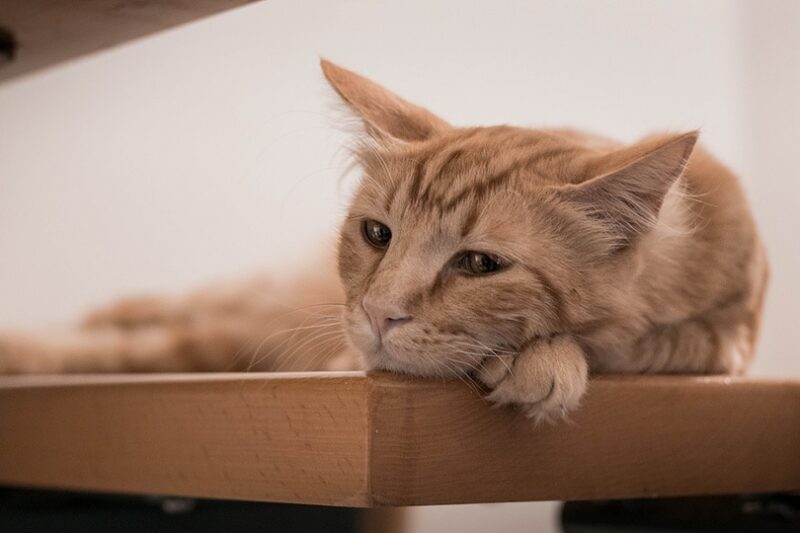In this article
While goats and cats have many differences, they can still transfer certain diseases to each other. Since common parasites and microorganisms can infect both species, it’s important to create and maintain safe and sanitary living conditions for them. Here’s what you need to know about preventing and reducing the risk of diseases being transmitted between goats and cats.

Diseases That Can Transfer from Goats to Cats
Not every disease that goats get can be transferred to cats, but some very important ones are worth knowing about. Infectious organisms such as Salmonella, Listeria, Coxiella and Campylobacter can all be shed by infected livestock, including goats, and can infect cats (and people). Further, goats and cats can suffer from many of the same internal parasites, including tapeworms, roundworms, and hookworms. These worms are transmitted when a cat comes in contact with a contaminated area, such as hay and dirt. They can also be transmitted through feces. A cat will become infected when they accidentally ingest the worm eggs or larvae or when larvae enters the body through skin penetration.
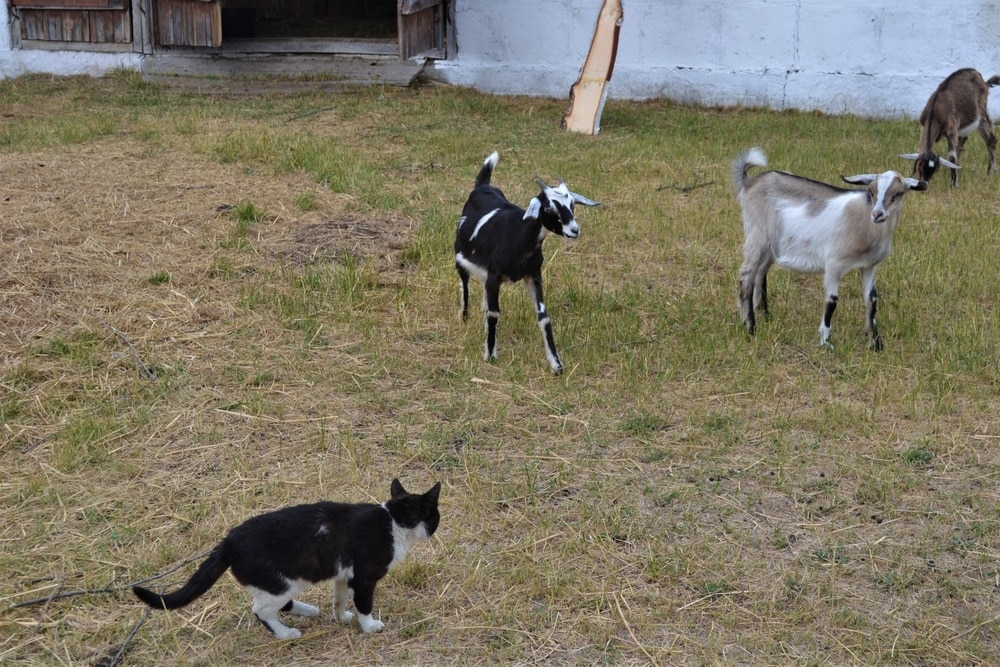
1. Toxoplasmosis from Goats to Cats
A common parasitic disease that can transfer from goats to cats is toxoplasmosis. Toxoplasmosis is caused by the single-cell parasite Toxoplasma gondii. This parasite can infect most warm-blooded animals and requires two types of hosts: definitive hosts and intermediate hosts. Definitive hosts enable parasites to propogate other generations, while intermediate hosts enable parasites to mature through their lifecycle.
Cats are definitive hosts of Toxoplasma gondii, while goats are intermediate hosts. Both cats and goats can transmit Toxoplasma gondii to each other. While most cats infected by Toxoplasma gondii don’t show any signs of illness, pregnant female goats are at risk of abortion and neonatal mortality if they’re infected by this parasite.
2. Diseases Transmitted by Fleas and Ticks
Both cats and goats can be hosts to fleas and ticks. Fleas and ticks can carry bacteria and other microorganisms that can cause their hosts to get sick. For example, certain ticks can carry Borrelia burgdorferi, which is the bacteria responsible for Lyme disease. So, if a goat is a host to ticks that carry these bacteria, they can put cats at risk of getting Lyme disease if they transfer the ticks to them.
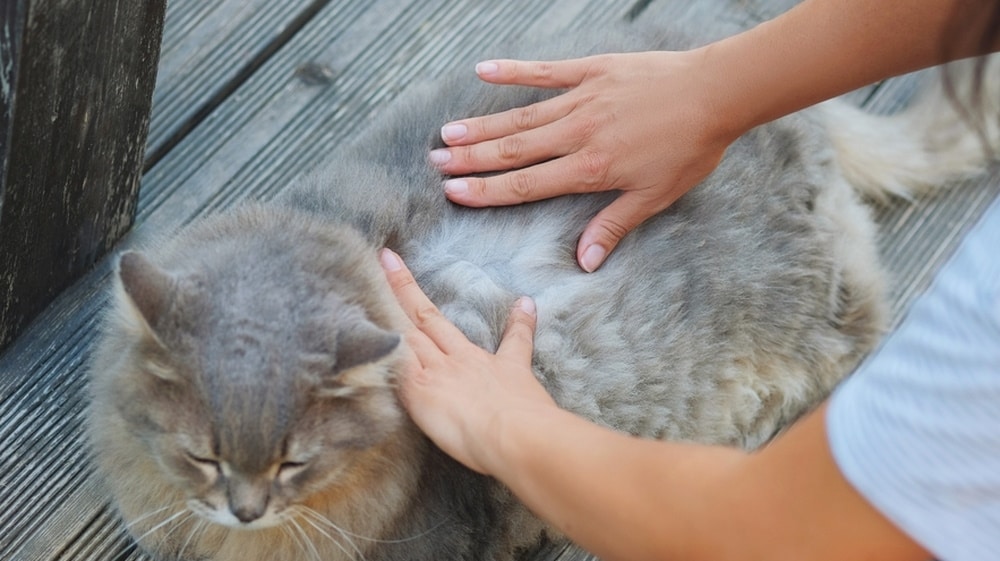

How to Prevent Cats from Catching Diseases from Goats
Fortunately, there are several things you can do that will effectively reduce the risk of disease transmission between cats and goats. First, make sure that both your goats and cats are living in sanitary conditions. Keeping their living spaces and eating areas clean will reduce the risk of parasitic infestations and the spread of infectious diseases. Since many diseases can be transmitted through feces, it’s important to clean up after animals daily.
Make sure also to get your cats and goats on a deworming schedule. You can work with a veterinarian to determine the best deworming schedule that will protect both your cats and goats from parasitic infections. It can also be helpful to schedule fecal exams regularly to test for worms.
If you need to speak with a vet but can't get to one, head over to PangoVet. It's an online service where you can talk to a vet online and get the advice you need for your pet — all at an affordable price!
If at all possible, try to prevent your cat from accessing your goats’ pen and living spaces. This can significantly reduce or eliminate the risk of your cat coming in contact with any contaminated spaces.

Conclusion
Goats can spread certain infectious diseases to cats, and some of these can also infect humans. Maintaining sanitary conditions and getting your cats and goats on a deworming schedule are both effective ways that help reduce the risk of disease transmission. So, make sure to take time to implement proper safety measures because the extra effort can significantly lower the likelihood of your cat catching diseases from goats.
Featured Image Credit: Vera Larina, Shutterstock
